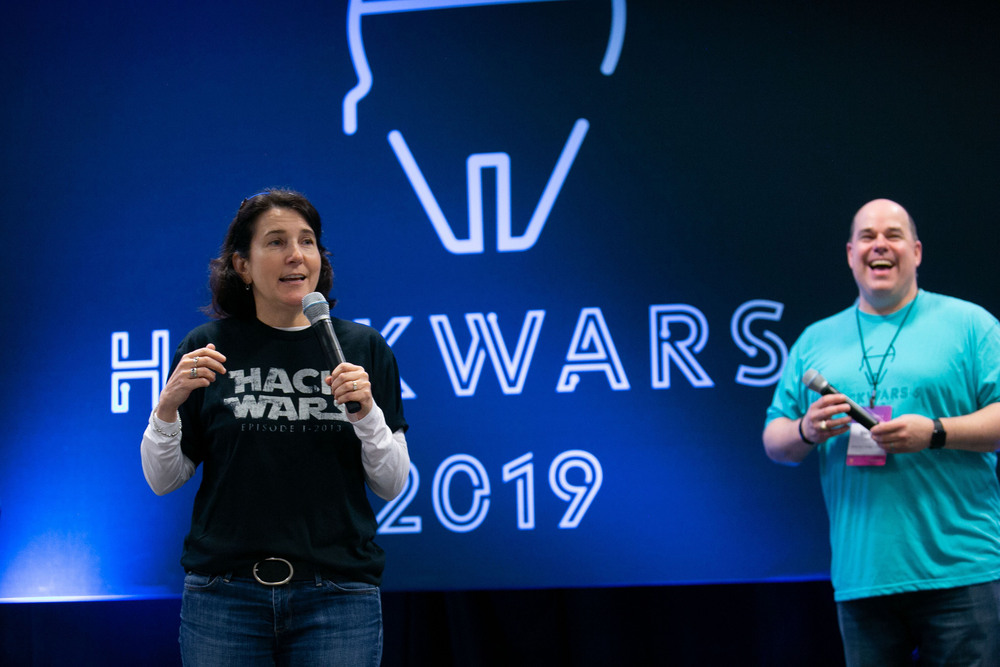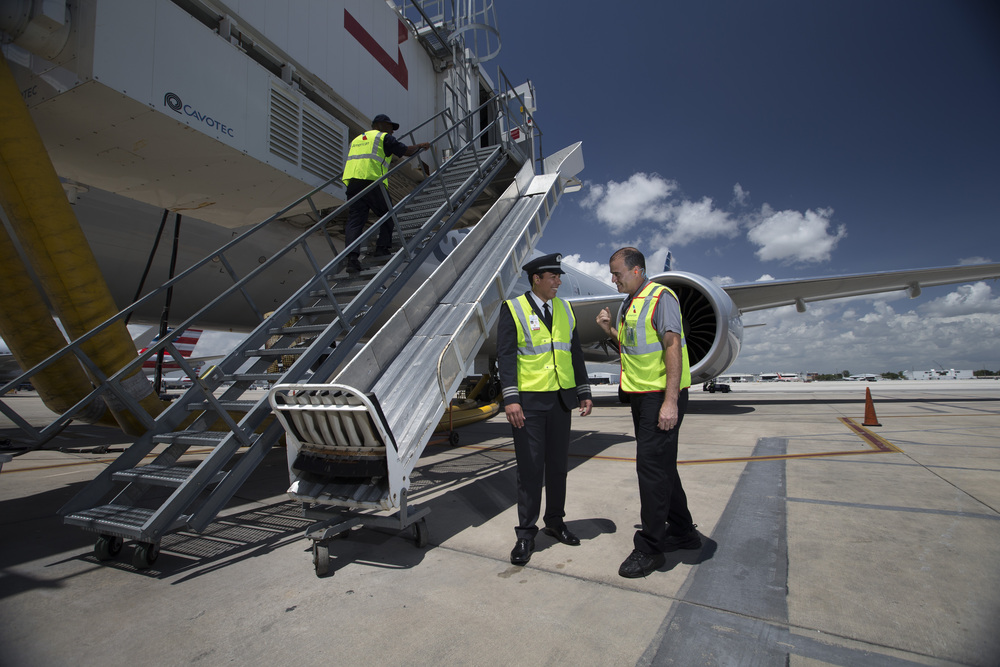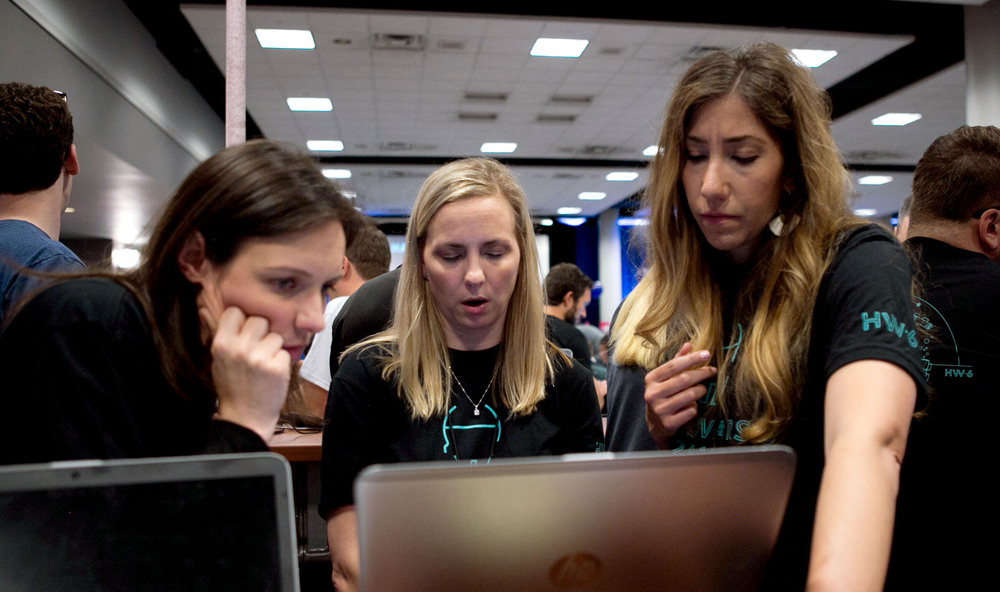American Airlines
Airline

If you’ve booked a flight recently, you can thank American Airlines for its innovation more than five decades ago. In 1960, during a time when clunky dial-in reservations elicited an eight percent error rate, a team of American and IBM programmers set out to build the first computerized transaction-processing system. It was an ambitious idea, but the result drastically reduced mistakes—and revolutized the way we make reservations and travel. Today, American is still championing groundbreaking ideas, and using GitHub Enterprise as an incubator for inspiration.
With 6,800 flights per day to more than 365 destinations in 61 countries, American is one of the biggest airlines in the world. Of its 130,000 employees, there are 4,000 employees dedicated to IT, 80 percent of which are centrally located at American’s headquarters in Fort Worth, with the remaining 20 percent stationed in Phoenix, Tulsa, London, India, and Argentina. To kickstart secure innovation across borders and boundaries of all kinds, American uses GitHub as part of HackWars—an annual internal event where the team’s best ideas are born.
Since 2013, HackWars has drawn 1,000 developers to Texas for a 24-hour hackathon that focuses on developing products for American employees and customers. It’s essentially an accelerator for American, and those who make it on to a team have bragging rights for the next year. “It’s like a badge of honor because it’s oversold and we can only accommodate so many employees,” explained Spencer Kaiser, Principal Architect of Emerging Tech. “This year it took us three minutes to hit our HackWars wait list.”

The only problem was that “every year, many of these great ideas fizzled out because there was no ownership,” he explained. That is, until 2017, when GitHub became a primary requirement for attendees. “We utilize GitHub as both a hosting and business engine solution that affords us a snapshot into the long-term vision for the ideas teams create,” he said. With GitHub, the team can rapidly view projects, see which ones they should develop, and take the necessary steps to put them on the path to becoming production applications.
Before GitHub, teams were siloed. They would choose their own tools on a project-by-project basis—but it wasn’t scalable. American needed a solution that could break down the barriers to collaboration, consolidate code, and meet strict regulatory guidelines. Now GitHub acts as a secure transitional tool after the event ends: The team knows where everything is and “we have all our code in one place,” said Kyle Lloyd, Program Manager for Emerging Tech and Startups.
Today, American has roughly 3,000 users who rely on GitHub as their fundamental listing platform for production applications, group concepts, “everything. It’s our primary source for code listing and cloud storage,” said Kaiser. It also helps that “GitHub is what the majority of our developers are using,” he explained. “We want to give our team not just the tools that solve the problem, but the ones they want to use. And GitHub is the latest and greatest in this space.”

From start to finish, HackWars supports American’s three strategic objectives: Make culture a competitive advantage; create a world-class customer experience and build American to thrive forever. “HackWars creates a culture of innovation that we want to keep fostering,” said Phillip Easter, Head of Emerging Tech. “The more we do this, the more employees engage and want to be on the creative side instead of slinging code all day.” It encourages any employee—no matter their level—to bring an idea forward for validation.
As HackWars approaches, American uses GitHub to host important information and announcements. Then, 100 teams of 10 come together around a central theme. In 2017, for example, the teams were tasked with “forming, storming, and norming” new apps for employees and customers, with a focus on artificial intelligence, drones, and augmented and virtual reality.
GitHub keeps us up to speed with the industry’s best tools. We want new hires to know GitHub is in our toolchain— it makes them excited to join us.
Teams are comprised of more than just developers. “You also see a mixture of project owners, project managers, business folks, designers,” said Kaiser. To validate ideas as they’re being developed, they have 12 cross-functional business units—including airport operations, customer experience, and aircraft maintenance—in what they call a “business cantina” to help avoid redundancies and mitigate missteps. “We don’t want impractical ideas to get all the way to the end.”
During the event, American keeps all the HackWars projects in one place, using the GitHub API to rapidly set things up, give everyone access, and even provide them with a GitHub Project with tasks designed to guide them through the event. The template repository has a readme file that includes everything American expects from the teams, and examples of how to structure a project. “We expect all those pieces to move, and there’s a component of scoring and completing those tasks,” said Kaiser.
Each year’s 50 sponsors aren’t just there for show. Through GitHub topics, American is able to digitally define which teams are leveraging what technology. Sponsors simply “run a slash command in slack to view all the different ways teams are using their products,” said Kaiser. This is a vast improvement from the usual guesswork, and encourages sponsors to continue working with American. “They absolutely love it and are thrilled to see such concrete results.” Stakeholders can pinpoint exactly what’s popular and what works—and everyone gets to see how teams are applying technologies in new ways.

In order for HackWars to stay successful, the team has to take action on the innovation it inspires. “One of the main motivators is to get cutting-edge software that impacts our customers,” explained Kaiser. “With GitHub, we can quickly act on ideas, iterate, create proof of concepts, and then fuel the fire. That’s the true goal of HackWars.”
Of the thousands of ideas that come from the event, only eight teams make it to the finals: three due to technical excellence and five because of their impactful idea. Many are in production or have been allocated funding for development in 2020. These include enhancements to employee travel tools for last minute travel opportunities, an app that helps identify miss-routed shipments for the cargo business line, and an app to help make day-to-day operations easier for front-line employees.
American Airlines has come a long way since 1960, reimagining the employee and customer experience along the way, and using GitHub to stay on the cutting edge. When it comes to recruiting, “GitHub keeps us up to speed with the industry’s best tools,” said Easter. “We want new hires to know GitHub is in our toolchain— it makes them excited to join us.”
company size
number of it employees
location
industry
product
From flexible hosting to data‐powered security, get everything your team needs to build at their best.
Contact sales